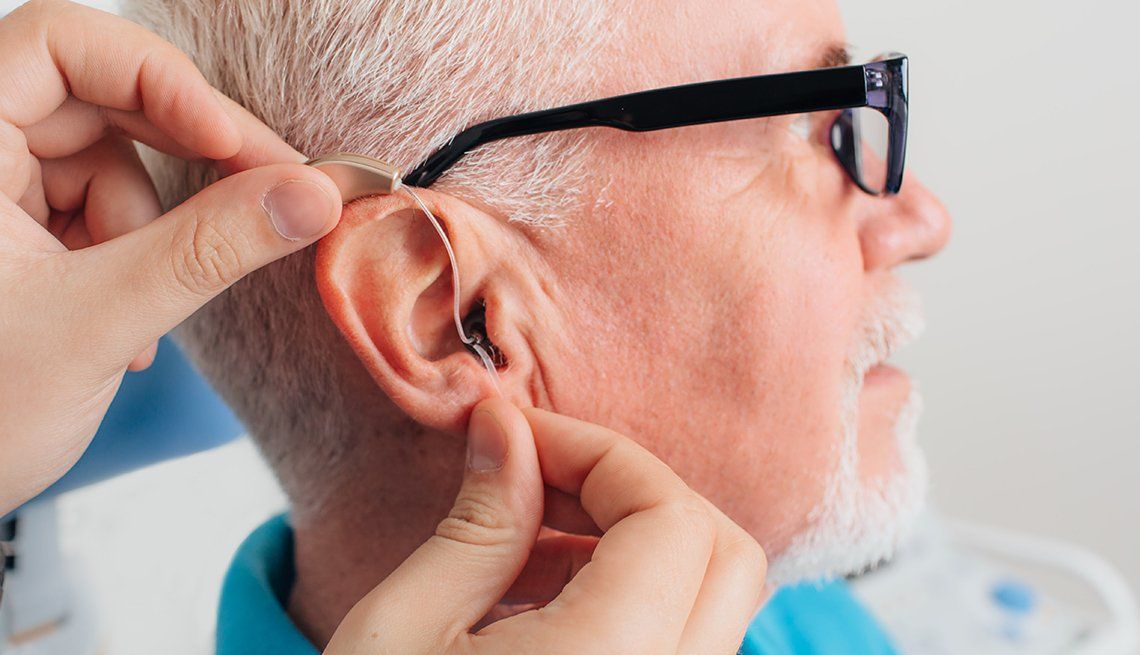What To Expect From a Hearing Test
Hearing tests are the core of hearing care. At South Oakville Hearing and Audiology Clinic, we go beyond simply measuring how well you can hear and get the necessary information to make data-driven recommendations that will make the biggest difference for your hearing loss.
We always start with a comprehensive hearing test and ear examination. From there, we will outline the options that have the best potential in your daily life. If you’re new to hearing care or have already been using hearing aids for years, book an appointment for a hearing test to learn more about your hearing.
Why get a hearing test
A hearing test is a process to get information to better understand your hearing and make informed decisions for any treatment, technology, or next steps. The main reasons to get a hearing test are:
- Understand where your hearing is at today
- Get data to make an informed decision
- Get a hearing baseline to use in the future
Understand your hearing
Understanding your hearing loss is the top success factor with hearing aids. A hearing test aims to describe the state of your hearing and uncover what factors may have contributed to a hearing loss. By discussing your lifestyle and health history, your hearing specialist will explore how any hearing issues may be impacting your daily life.
A hearing test will also aim to uncover the type of hearing loss and location within the auditory system where they might be a problem. There are different types of hearing losses depending on the location within the ear where the issues originate, so a hearing test can clarify why you hear the way you do.
Get data
A hearing test is often the first step when considering technology or treatments to manage hearing challenges. If hearing aids are an option, then the data from the assessment is integral when deciding the type and technology level and if hearing aids are worth it for you.
We want you to be confident in the decision you make. If you already wear hearing aids or are deciding which ones to get, then understanding your hearing is the best action you can take to improve the outcomes of your devices. Our hearing professionals rely on the data from a hearing test to make recommendations for your next steps.
Get a hearing baseline
One in five Canadians have at least a mild hearing loss in the range of sounds that are important to speech. Over time, the likelihood of age-related hearing challenges increases.
A hearing test before you have discernable challenges with your hearing provides a baseline of information that may be incredibly useful in the future. By comparing current results to a previous hearing baseline, a hearing professional can identify the sounds that were most impacted and potentially explain what is happening within your hearing system.
Screening tests in schools are common for children, but many adults don’t get a hearing test until there is an issue. Even if your hearing is healthy, a baseline test will provide valuable information. It is even more critical for anyone that works in noisy environments or is at risk of noise trauma. Should there ever be a concern, this information provides a direct comparison.
What to expect from a hearing test
The complete hearing evaluations from South Oakville Hearing and Audiology Clinic will help you understand your hearing, get you the data necessary to make informed decisions, and provide you with a baseline of information to use in the future. Our hearing tests are complimentary because we want to contribute to better hearing health for all adults on Vancouver Island.
A hearing test at South Oakville Hearing and Audiology Clinic includes five steps:
- Discuss your hearing and any concerns you may have
- Review your health history and lifestyle
- Physical examination of the ear canal with live video feedback when needed
- Screening test of the middle and inner ear
- Review of the results
Discuss your hearing
We gather clues about your hearing by discussing any challenges that you notice – and challenges that you may not even be aware of. Many people adapt to their hearing loss through intentional and unintentional habits. Our hearing professionals will ask questions to learn about how any issues with your hearing may be affecting your life.
Review your health history and lifestyle
Hearing health relates to your overall health and lifestyle at home, work and beyond. Your hearing professional will review your health history to understand any issues or medications that may contribute to hearing challenges. By reviewing your daily habits, we will identify potential hearing loss factors and get information that is essential for recommending possible solutions.
Physical examination of the ear canal
Using a tiny camera to look inside your ear canal, the hearing health professional will physically examine the state of your ear up to the eardrum. We can even show you the video as we examine the ear!
Tympanometry
A device we use that allows gentle comfortable pressure to test the health of the eardrum and the moving parts behind them. Middle ear health is important to test to find out where the origins of any hearing issues may be stemming from.
Hearing test
This step includes the hearing tests that most people are familiar with. You will sit in a sound booth with headphones and listen to both tones and words, and then you’ll be asked to respond to the beeps or repeat the words. It’s a very friendly and easy-going experience.
Discuss the results
After completing the hearing test, your hearing professional will review the results and explain what they mean for your hearing. We can learn about the state of your hearing through our hearing evaluation, so we will take the time to go through the details. If hearing aids are a recommended option, we will review what to expect and the next steps for deciding on the best devices.
Passing or failing a hearing test
Hearing tests are not a pass or fail – they are an assessment of where you are today.
No matter the results, we will review the details of the test and discuss where you want to be with your hearing. If there is a gap between where you are today and what you want from your hearing, we can suggest the options available to shrink that gap. The options may include hearing aids, but we will rely on the results from the test to make the best recommendations.
Book a hearing test
Schedule an appointment for a hearing test at South Oakville Hearing and Audiology Clinic. The results from the test will help you understand your hearing and be confident in the next steps in your hearing journey.


